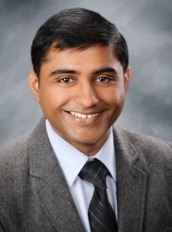COSMOS is pleased to announce that its director Dr. Nitin Agarwal has been awarded a $2.4 million grant from the U.S. Department of Defense for the development of novel socio-computational methodologies to model emerging cyber-social threats and strengthen social cybersecurity research infrastructure.
The funding will support the development of social media cells that assist with information environment assessment in real time and the rapid and appropriate response to the growing weaponization of social media in influencing peace keeping, tactical, operational, and strategic operations. Military units at all levels will benefit from the identification of threats and opportunities within the information environment (IE).
Creating well-trained social media cells will enable rapid and appropriate response that can neutralize propaganda and mitigate its negative effects. Social media platforms that are manipulated by adversarial campaigns can shift international and regional opinions about the use of military force or validity of military operations in a region. At the tactical level, social media propaganda could potentially be used to persuade susceptible targets to disrupt or delay military operations through protests or other “non-lethal” resistance.

Dr. Agarwal said, “The aim of this project is to examine, evaluate, measure, and predict the threat level of the adversarial information campaigns.” A multi-model approach will be developed to analyze adversarial information campaigns conducted in an integrated online information environment. Specifically, the research will identify key actors, groups, narratives, media integration strategies, and tactics deployed by the adversary to disseminate disinformation and conduct influence operations. The research approach will adopt a blend of computational modeling, big ‘social’ data, and social science theoretical principles to examine cyber campaigns and assess the threats they pose.
More specifically, the effort will bridge big data and social computing research communities for a synergistic advancement of big data research infrastructure and security for the modern social and communication space. COSMOS will develop research informed solutions to surmount challenges in curating and analyzing social media data characterized by its volume, velocity, and variety. Training exercises will be conducted which will help enhance the US workforce with skills in the challenging and changing domain of big data analytics, data management, machine learning, and AI with applications in security.
“The proposed effort aims to spark innovation and entrepreneurial aspirations in big data and its applications aligning with the knowledge-based economic development mission of the state of the Arkansas. This will not only help develop talent within Arkansas but also retain and acquire new talent.” said Dr. Agarwal.
